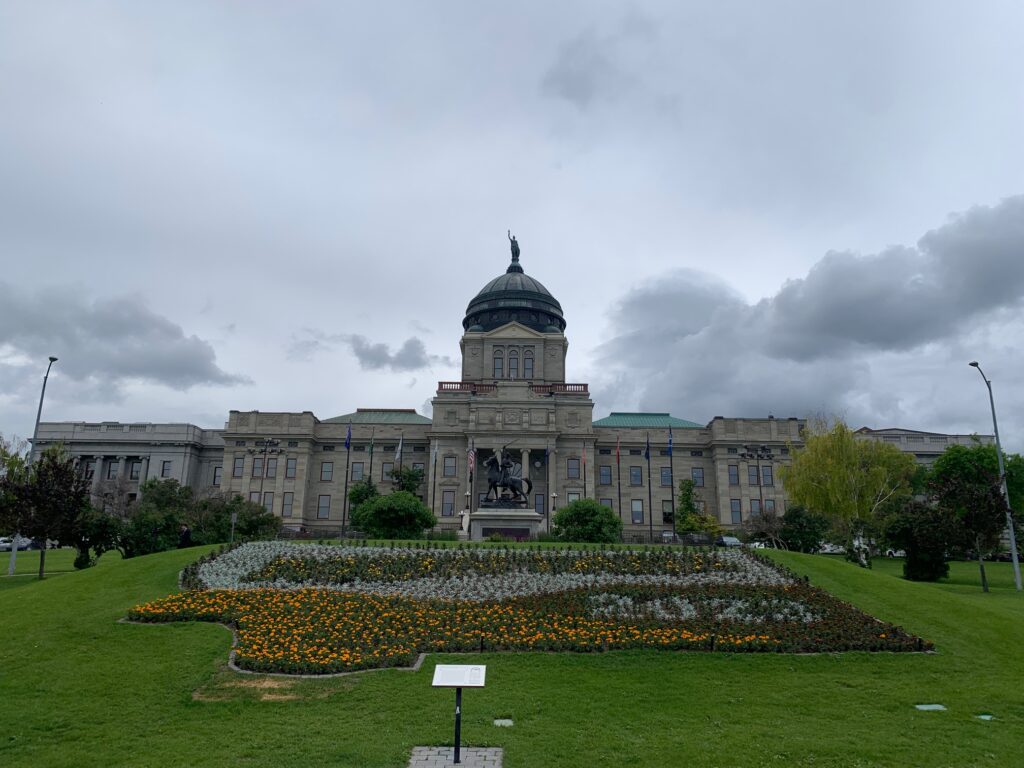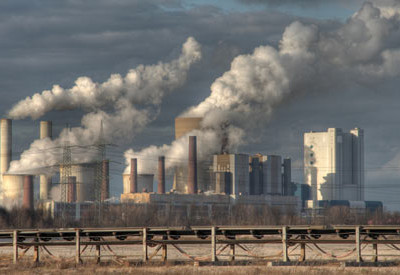A Montana Victory for the Youth Climate Movement
Held v. Montana shows climate science can win in a courtroom. But one decision is just the beginning of a long legal fight.

A state court judge in the ‘Last Best Place’ just gave the youth climate movement a shot in the arm with the first decision of its kind that directly connects specific state actions to global climate change and then to injuries suffered by young people. It’s a decision worth reading, as U.S. courts have not yet engaged in this kind of fact-finding on climate change. Here are some highlights from Held v. Montana.
“Defendants’ actions contribute to climate change and harm plaintiffs.”
The plaintiffs won this case on climate science. They called expert witnesses to calculate the total greenhouse gas emissions caused by activity in Montana, a major gas and coal producing state, and connected that to tangible impacts on ecosystems and humans in the state. In the 103-page decision, the court relies heavily on the facts laid out by these climate scientists who testified under oath and faced cross-examination. The court describes them as “well-qualified” experts who gave “informative and credible testimony.”
The state failed to put up a serious defense when it came to contesting this science. The court writes that the testimony of the defense’s main witness, economist Terry Anderson, “was not well supported, contained errors, and was not given weight by the Court.” Courtrooms, even in red states, are quite capable of weighing expert testimony connecting the climate crisis to state policies.
“Plaintiffs have proven standing.”
The court agreed that the kids are not alright: “Youth plaintiffs have experienced past and ongoing injuries resulting from the state’s failure to consider GHGs and climate change including injuries to their physical and mental health, homes and property, recreational, spiritual and aesthetic interests, tribal and cultural traditions, economic security, and happiness,” reads the decision. One of the disputed facts that the judge said she was looking to settle was whether the injuries claimed by the young plaintiffs were “inaccurate” or “mischaracterized.” The court found they were neither.
As I wrote about here, plaintiff Rikki Held lives with her family on a 7,000-acre ranch where they depend on water rights to a river that has dried up and land that’s been scorched by wildfires. Plaintiff Sariel Sandoval grew up on the Flathead Indian Reservation as a member of the Confederated Salish and Kootenai Tribes. She’s seen similar impacts from fire and drought, which has challenged her community’s ability to practice and impart their cultural traditions, threatening a profound emotional and psychological loss. Georgianna Fischer is a competitive cross-country skier who testified about the plight of snow sports. “My sport may not exist in the future,” she told the court. “I rely on my sport for my health and happiness.”
The court ruled that “Plaintiffs’ mental health injuries directly resulting from State inaction or counterproductive action on climate change, on their own do not establish a cognizable injury… However, Plaintiffs’ mental health injuries stemming from the effects of climate change on Montana’s environment, feelings like loss, despair and anxiety are cognizable injuries.”
Kids in Montana could point to a constitutional right to “a clean and healthful environment.” Most state constitutions don’t have this kind of guarantee. But New York, Pennsylvania and Hawaii do, so these courtroom lessons are applicable for future trials there.
“The ‘MEPA Limitation’ violates the Montana constitution.”
The Montana legislature’s attempts to prevent state agencies from considering climate change or greenhouse gas emissions––inside and outside the state’s borders––was declared unconstitutional and permanently enjoined. This is the so-called “limitation” on the Montana Environmental Policy Act, or MEPA. The big conclusion comes on page 101 of the decision: “Montana’s GHG emissions and climate change have been proven to be a substantial factor in causing climate impacts to Montana’s environment and harm and injury to the youth Plaintiffs. “
Judge Kathy Seeley writes that, “by enacting and enforcing the MEPA limitation, the State is failing to meet their affirmative duty to protect Plaintiffs’ right to a clean and healthful environment, and to protect Montana’s natural resources from unreasonable depletion.”
It was not a foregone conclusion that Judge Seeley would rule this way. Theoretically, the state could have shown a compelling interest (revenue, jobs, etc.) that justified the harm. But the state didn’t do that. The Attorney General’s office made a procedural argument rather than seriously engaging with the plaintiffs’ claims. “The state failed to show that the MEPA limitation serves a compelling government interest,” the decision reads. “The state did not put forward any evidence of a compelling governmental interest for the MEPA.”
Prioritizing fossil fuels over renewable energy in 2023 for insubstantial reasons does not pass strict scrutiny. That’s not unique to Montana, even though this case focused on state laws. Notable for future litigation was this court’s focus on the feasibility of quickly moving to renewable energy systems, especially wind, water, and solar. “The current barriers to implementing renewable energy systems are not technical or economic, but social and political,” the decision says.
Is it a ‘game-changer’?
For all the reasons above, this strongly framed decision is a big win for the youth climate movement and bad news for states that are hoping to make some of these same arguments in future court cases. It’s worth noting just how excited environmental lawyers are feeling about the order itself–-as in the judge’s language. The decision builds off of the plaintiffs’ own proposed findings of fact and conclusions of law. It’s fact-based, but forceful in its embrace of the connections between climate science and energy policy and the state’s constitutional obligations to provide a clean and healthful environment.
It’s hard to see what, if anything, the plaintiffs’ lawyers at Our Children’s Trust will do differently in their upcoming state and federal trials based on this victory. But it’s certainly a shot of confidence in their approach to tell the everyday story of young people harmed by state-sanctioned energy policies and rely on witnesses who are respected climate science and governance experts local to a given jurisdiction. It confirms the wisdom of the strategy to focus on young plaintiffs, who are disproportionately affected by global boiling. It will help the non-profit law firm grow and fundraise as they secure new trial dates and file new cases. This momentum will not go unnoticed by lawyers for the Department of Justice and various state attorneys general.
What may prove more influential is the degree to which other judges around the country observe this trial proceeding, read the outcome, and consider how to best weigh climate science methods and concepts in their own courtroom. Educating judges around the country, and the world, about developments in climate law has been the mission of several legal organizations for decades. A less-than-two-week trial in Helena, Montana may have significantly moved that cause forward.
All this said, the immediate impact in Montana could be muted. For one thing, the attorney general’s office says it will appeal to the state Supreme Court. For another, the Montana Legislature and state agencies remain committed to energy policies that prioritize dirty fossil fuels and will not go without a fight. Consider Montana Attorney General Austin Knudsen: he just urged the EPA to scrap its proposed rule to dramatically decrease carbon dioxide emissions in the energy sector, baselessly implied that Planned Parenthood is engaged in human-trafficking, and called Judge Seeley’s decision “absurd” through a spokesperson. Officials with the Montana Department of Environmental Quality insist they don’t hold authority to deny fossil fuel projects. That’s what they testified at trial and they’re unlikely to change their tune because of this decision. They’ll have to be pushed. Who will do the pushing? When courts leave implementation details to the same agencies that were deficient in the first place, progress is a slow grind and often requires a lot of political pressure. Which means Held v. Montana is just the beginning. It will be the face of the wave—not the crest—for the youth climate movement in the U.S.







Reader Comments